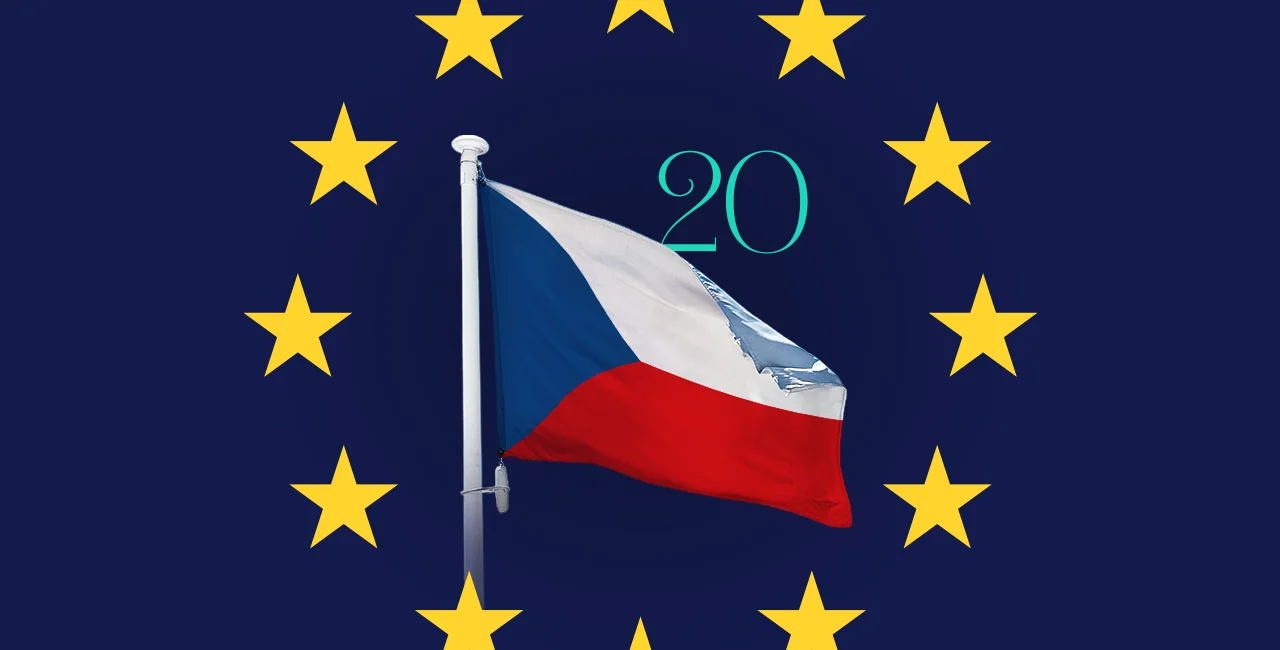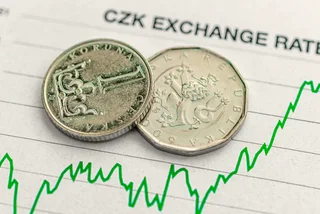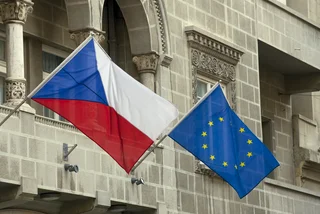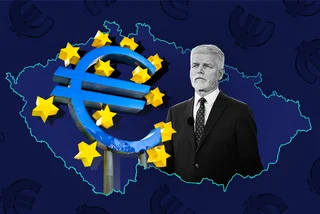Since joining the EU 20 years ago, Czechia has transformed as a country – for better or worse. Its GDP, job market, societal health, demographics, and other elements that typify a country have shifted owing to EU financial help, laws, immigration, and more.
“Joining the EU has been a win for Czechia in many ways…things that used to be rather unattainable for us, such as traveling freely, working, and studying in other countries, have become a natural thing for a whole generation,” said President Petr Pavel earlier this week.
Similarly, Prime Minister Petr Fiala said that EU membership has contributed to Czechia being a much richer country today, also giving Czechia security guarantees and anchoring the country firmly in the West.
Interior Minister Vít Rakušan on May 1 – the anniversary of Czechia’s EU accession – praised the country’s “far greater possibilities” and said the EU helps countries “achieve more together than they could do individually.”
But what has happened in Czechia since 2004, and what benefits has the country seen from EU membership?
Czechia in the EU: Fast facts
- Since 2004, the country's GDP has increased from 80 percent of the EU average to 91 percent.
- Residential properties' prices have risen from 62 percent to 71 percent of the EU average since 2004.
- Of the estimated 443,600 foreigners working in Czechia, Slovaks (236,430), Poles (52,070), and Romanians (49,260) make up the largest share.
- The monthly minimum wage (gross) has increased from CZK 6,700 to CZK 18,900 between 2004 and 2024.
- Over 400,000 Czechs have studied abroad since Czechia's EU entry.
Economy
Czechia’s economy is looking much rosier since 2004. Two decades ago, Czechia’s GDP per capita was CZK 275,950 – today, this figure stands at around CZK 718,680.
PARTNER ARTICLE
Additionally, Czechia's net annual average income is now two-thirds of the EU average, up from one-third in 2004. Twenty years ago, the country’s net annual average income per person in 2004 was around CZK 150,000, much lower than the CZK 347,000 per person today.
Entry into the EU also helped spur Czech trade, with Czechia allowed to import and export goods to other EU countries without extra charges. As an example, exports in Czechia 20 years ago totaled around CZK 1.7 billion, and imports were worth roughly the same. Two decades on, Czechia’s total exports hover around the CZK 5 trillion mark, and imports stand at CZK 5.1 trillion. Around 80 percent of all exports go to other EU member states.
Unfortunately, public debt in Czechia has skyrocketed since joining the EU, although it was already on a rising trend. In 2004, Czechia’s public debt stood at 28 percent of total GDP – today, this is at 44 percent.
Work
Employment has long been one of Czechia’s strong points, and joining the EU served only to help Czechia’s workforce. In 2004, around two-thirds of people aged 15 to 64 were employed – today, this stands at 75.5 percent.
Notably, unemployment was at a relatively high 9.7 percent in January 2004. Now, it hovers at between 3 and 4 percent, one of the EU's lowest rates.
Salaries have also jumped – the monthly gross minimum wage was CZK 6,700 in early 2004. Today, it is CZK 18,900. Despite this, wages still lag behind price growth: between 2008 and 2023, Czech salaries moved from 59 to 68 percent of the EU average.
The value of Czech labor – or labor productivity – has also surged. In 2004, one hour of work in Czechia was worth about CZK 351 per hour. This is now over CZK 700.
Gaining EU status also made Czechia a much more attractive place to work. The number of EU nationals working in Czechia has, in the last two decades, more than doubled – from about 110,000 in 2005 to 443,648 in 2022.
Czechia's status as an EU country has also, in general, made it even more attractive for third-country nationals to work in. Last year, the total number of foreigners working in Czechia surpassed 1 million.
Of all EU citizens, around 23 percent work in “highly skilled” fields, and the Association of Business Service Leaders in the Czech Republic also writes that around half of all employees in Czechia’s business services sector are foreigners.
Society
Czechs now live longer in a much more developed country than they did 20 years ago. In 2004, the UN gave Czechia a Human Development Index (HDI) score of 0.836. Today, this stands at 0.895, making Czechia the country with the 32nd-best HDI score worldwide. In 2004, average life expectancy at birth was 75.3 – this has now surged to 78.1.
Joining the EU also opened up borders – both for people wishing to move to Czechia, and for Czechs wanting to experiment with new EU countries. This has changed the country’s demographics.
In 2006, around 57,000 people from EU countries had registered long-term residence in Czechia – this figure today stands at over 226,000 according to the Czech Statistical Office. However, the amount of EU nationals de facto living in Czechia is much higher.
Conversely – and although exact figures are hard to quantify – around 320,000 Czechs lived and worked in the EU as of pre-Covid 2019.
The poverty rate in Czechia has also fallen since 2004, almost halving from 20 percent to 11 percent (around 750,000 people). Crime, too, has declined – from 351,000 registered criminal offenses in 2004 to about 182,000 today.
Education
Joining the EU has opened doors for hundreds and thousands of young Czechs wanting to study abroad.
Since the inception of the Erasmus mobility program for short-term study exchanges (or internships), around 411,000 Czechs have taken to opportunity to spend at least one academic semester in a new EU country.
In turn, about 450,000 non-Czech EU students have come to Czechia as part of the Erasmus program. Of young people from EU countries coming to study in Czechia full-time, this number has increased from about 10,000 in 2004 to 25,000 in 2022.
Financial benefits from the EU
One large reason why Czechia benefits so much from EU membership is the fact that it receives more than it puts in. Since 2004, on average, Czechia has received an average of CZK 100 to CZK 150 billion per year from the EU budget, with contributions standing at around CZK 60 billion per year.
Since 2004, Czechia has received over CZK 1.9 trillion from the EU for a range of infrastructural developments, and it has contributed CZK 876.6 billion.
Czechia on the international stage
Czechia has become a more respected and significant country internationally since joining the bloc, although squabbles with the EU have detracted from a possible “perfect” relationship.
Its Council of EU presidency in the second half of 2022 exemplified the country’s leadership qualities, particularly in regards to co-ordinating aid to Ukraine (something still very much apparent today, underlined by Czechia’s ammunitions drive for Ukraine) and agreeing to caps on wholesale gas prices on the EU market.
However, Czechia’s first Council of EU presidency in the late 2000s was marred by an internal political scandal that saw the downfall of a government, along with the then Prime Minister Mirek Topolánek. Still, it was able to co-ordinate with the EU two years prior with regards to establishing a financial support package for countries worst affected by the eurozone crisis.
Not always a smooth relationship
Czechia has come to blows with the EU in the past, recently with its opposition to aspects of the EU’s Migration Deal – the country has long expressed discomfort with mandatory refugee quotas – and parts of the EU Green Deal, particularly with emissions regulations that would severely impact Czechia’s huge automotive industry.
Questions surrounding EU-wide directives and stances – such as agricultural laws, budgetary rules, and its position on the Russia-Ukraine war – have caused anger among some politicians and sections of society.
Too, a debate on euro adoption is omnipresently brewing in the background of Czech politics; something of an elephant in the room that, sooner or later, a Czech government will need to address directly.
All in all, Czechia is in better shape than it was 20 years ago: it is more international, Western-facing, economically prosperous, diverse, has higher employment levels and job opportunities, and also has a healthier population.
The EU-Czechia relationship is not flawless by any means, particularly with arguments about lawmaking sovereignty, though the majority of people in Czechia will likely be grateful for what the alliance has done for Czechia in two very eventful decades.












 Reading time: 6 minutes
Reading time: 6 minutes 





































